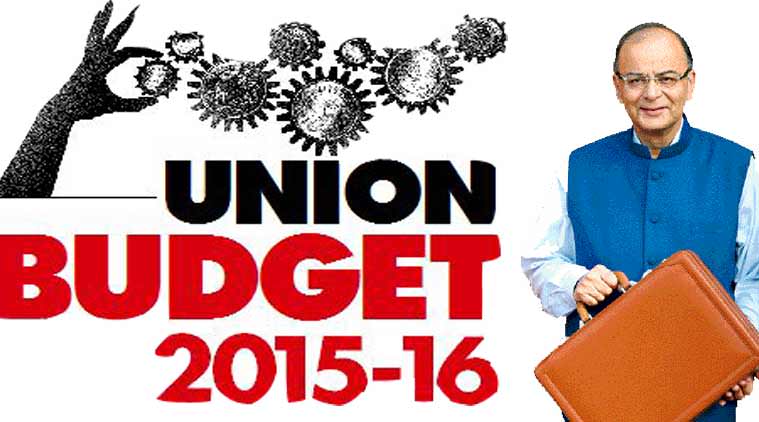Syndicate
The start-up industry eagerly waits for the Union Budget
Prime Minister Narendra Modi has done something unusual that very few heads of government in the world have been able to do. He has struck a chord with start-up entrepreneurs. When the new government led by Mr.Modi came to power, it immediately started to engage with new-age firms. This was a pivotal moment in the history of India’s start-up ecosystem because the word ‘start-ups’ made its way explicitly into the Indian Budget lexicon only in 2014. And then, last year, Mr.Modi, in his Independence Day speech, announced a new campaign — Start-up India; Stand-up India — to promote entrepreneurship. Last September, he visited the Silicon Valley, the world’s innovation hub, to promote his ‘Start-up India’ vision and form partnerships with top tech companies. In January, Mr.Modi unveiled ‘Start-up India’ Action Plan in front of about 1,500 entrepreneurs from across the country and global chief executives in New Delhi. He announced that a part of the package to foster innovation will come in budget 2016. The finance minister is expected to announce a slew of measures designed to turbo-charge young firms when Arun Jaitley unveils the Budget next week. India’s start-up fraternity would be watching him closely with lot of anxiety and excitement. This is because excessive red-tapism in India is forcing young, promising entrepreneurs to shift to countries with business-friendly regimes and regulations.
Software product think tank iSPIRT, which works closely with over 900 product firms, has presented Ministry of Finance about 36 issues as ‘Stay-in India-Checklist’ that needs immediate attention.
“For the first time there has been a concerted effort to address ease of business issues for start-ups,” said Mohandas Pai, chairman, Aarin Capital and a top angel investor.
“There is lot of anticipation that some of the long-standing issues in ‘stay in India checklist’ will be resolved,” said Mr.Pai.
These issues range from focus on easy tax regimes to software product trade promotion in domestic market. Ease and promotion of investments in young firms and incentivising innovation are other areas that need attention.
“A small basket of tax sops merely will not be effective enough for existing system which is riddled with several bottlenecks,” said Sharad Sharma, cofounder of iSPIRT.
Definition for digital goods
Top entrepreneurs like Vishnu R. Dusad, chief executive of Nucleus Software say that software product industry faces three major challenges in the tax regime. These include confusion on ‘goods’ versus ‘service’ tax on online downloads and tax deducted at source (TDS) on sale of software products.
iSPIRT has sought to remove the confusion of ‘goods’ versus ‘service’ tax by provisioning a definition for them. This will help streamline tax regime for a single digital market. Also, classifying downloaded software product under Harmonised System, an international nomenclature for the classification of products, will provide a boost to the domestic software product trade.
Nakul Saxena, an industry policy advocacy official at iSPIRT, said that the tax deducted at source on sale of software product should be only limited to non-permanent establishment entities selling software in India. “Indian entities should be exempted from it,” he said.
Incentivise innovation
There is a need to create a favourable tax regime for intellectual property rights. Technology companies tend to establish base in countries that are most favourable for intellectual property rights such as Singapore, Ireland and Netherlands.
Nine of the top 30 business-to-business software product companies by market capitalisation have already relocated overseas.
iSPIRT has proposed a concessional rate of 10 or 12 per cent on total net income received from licensing of intellectual property rights. It has also asked to allow capitalisation of expenditure in intellectual property rights creation on par with capital expenditure in manufacturing.
For instance, Mumbai-based information security firm Seclore which sells its technology to organisations such as Bhaba Atomic Research Centre and Indian Airforce has created significant intellectual property. And yet, it is treated the same way as any other enterprise.
Shivakumar Ganesan, chief executive of tech firm Exotel, is of the view that a lower rate of tax on licensing and efficient registration and enforcement process for intellectual property would definitely help.
“Protection and monetisation of intellectual property is a key concern for a business like ours,” said Mr.Ganesan. His firm replaces expensive communication hardware system with affordable cloud-based telephony solutions for customers like bus ticketing site redBus and Practo, a firm that schedules appointments with doctors.
Sanjay Khan Nagra, an associate at law firm Khaitan & Co, said that a big leap required for Start-up India Action plan to be a success is in area of reforms in creating an investment-friendly environment. “This is an area which encourages large number of young ventures to domicile in other countries and hence needs urgent attention,” he said.
The government’s Action Plan also proposes the investments by incubators in new firms to be exempted from tax. Experts say this provision needs to be extended to angel investments by making suitable amendments to the existing law. This will allow young firms to attract investments.
Incentivising ‘rupee’ investment
Foreign investors, depending upon the country that they invest from, get tax exemptions. However Indian ‘rupee’ investors do not have any such incentive and are subjected to capital gains tax in India. Capital gains tax is a type of tax levied on capital gains incurred by individuals and corporations.
“It is important to attract the ‘rupee capital’ in start-ups which otherwise remains invested in ‘low risk’ investment avenues such as gold,” said Sudhir Singh, a fellow at iSPIRT.
Accredited investors
The regulations introduced by Securities and Exchange Board of India require an investor to invest at least Rs.1 crore in alternative investment funds (AIFs) or any privately pooled investment fund. Globally, a concept of ‘accredited investors’ is used. iSPIRT has proposed that a system of ‘accredited investors’ be evolved with a defined criteria to promote investments in alternative investment funds, with a monitoring system.
Taxation on ESOPs
The employee stock ownership plan (ESOPs) can be a great tool for young technology companies to attract and retain talent. ESOPs today are not very attractive. They are considered as perquisites. The employee is subject to tax at time of exercise of option. For instance tax is payable immediately even if the employee has not sold the share in that tax period. As a result the magnitude of the tax is calculated on the notional gain between the acquisition price of the share and the fair market value at the time of exercise. This is a significant amount of cash outflow on an income.
“It is recommended that tax incidence should arise in the year of the sale of shares and not the year of exercise of the option,” said Mr. Singh.
Global practices in angel investment
Angel investors will continue to be the largest source of funds for young firms. One of the most important aspects of promoting funding in small ventures is the globally competitive angel investment framework. This includes providing for higher tax credits and allowing angel groups to use limited liability partnerships as a tax pass through investment vehicle. This is already allowed globally.
Single window for start-up closure
To start a business may be time consuming but to close a venture in India is a nightmare. The process of voluntary winding-up is also extremely painful and time-consuming. iSPIRT has proposed setting up of a single window for efficient closure of start-ups.
Story courtesy: The Hindu









































